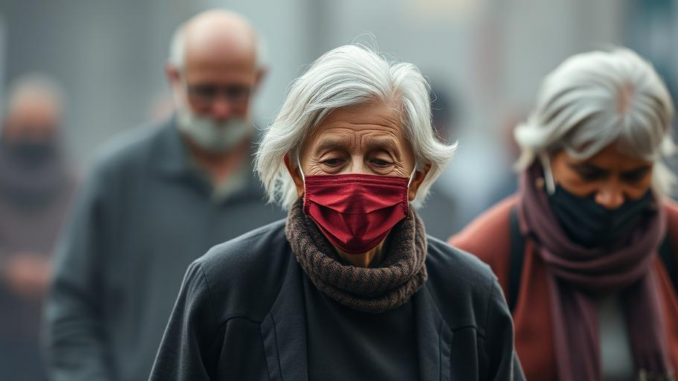
Summary
This article examines a recent Canadian meta-analysis exploring the impact of the first two COVID-19 pandemic waves on acute healthcare utilization and mortality among people with dementia. The study found significant declines in emergency department visits and hospitalizations, coupled with increased mortality, especially in nursing homes. It highlights the need for improved pandemic preparedness to protect vulnerable populations like those with dementia.
** Main Story**
Alright, let’s talk about how COVID-19 really messed with dementia patients in Canada. You see, the pandemic threw healthcare systems into complete chaos globally. But a recent Canadian meta-analysis, it really hones in on what happened to individuals living with dementia, and it’s pretty eye-opening. Published in the Canadian Geriatrics Journal, this research looked at data from four provinces – Alberta, Ontario, Saskatchewan, and Quebec – focusing on acute healthcare utilization and, sadly, mortality during the first two waves of the pandemic. This study really emphasizes the need to learn from our mistakes.
Key Findings: A Double Whammy
This wasn’t a small study either. They analyzed a large group of people with dementia, both those living at home and those in nursing homes. And the trends they found? Seriously concerning. I mean, have a look at this:
- Healthcare Took a Nosedive: They saw significant drops in both emergency room visits and hospitalizations across the board during the first wave. And get this, for those living at home, it didn’t bounce back much afterwards. This was really pronounced for conditions that usually require regular ambulatory care, so you know, preventative stuff. It just seemed like people with dementia couldn’t get the routine care they needed. Maybe they were afraid, or maybe the systems just weren’t there.
- Mortality Went Through the Roof: On the flip side, and this is the gut-wrenching part, all-cause mortality shot up. It was especially bad in nursing homes, where deaths were a staggering 36% higher during the first wave than before the pandemic. Those living in the community weren’t spared either; they saw a 13% increase in mortality during the second wave. It really begs the question, what more could have been done?
The Alarming Drop in ED Visits and Hospitalizations
Now, thinking about those declines in ER visits and hospitalizations… it’s something to really dig into. Across those four provinces, it was the same story, the number was pretty dramatic. Regardless of whether someone was living in the community or in a care home. And it wasn’t a blip; the decrease persisted past the first wave for community-dwelling folks. I can’t help but wonder if the news was so scary that people just stayed away, or maybe getting around was just too hard with all the restrictions. The researchers are right, access to essential care for people with dementia during crises is crucial, and if these declines signify a surge in unattended medical needs and potential emergencies, well, that’s extremely concerning. What measures are we taking to ensure this doesn’t happen again?
A Devastating Rise in Mortality
But here’s the really tough part. Along with the drop in hospital visits, there was a corresponding, and truly devastating, rise in mortality rates among this population. And while both groups in the study were affected, the nursing home residents suffered the most. We’re talking a 36% jump in all-cause mortality during that first wave, compared to pre-pandemic numbers. I mean, that’s just… tragic. Did Canada’s healthcare system drop the ball in protecting a known vulnerable population? It really highlights how susceptible they are to infections, how rapidly their health can deteriorate, and the importance of protecting those that can’t protect themselves.
What Does This Mean for the Future?
Honestly, this meta-analysis is a harsh reminder of how badly COVID-19 hit individuals with dementia. It’s a call to action for better pandemic planning, with a specific focus on protecting vulnerable groups. The researchers emphasize a few key things:
- Keeping Healthcare Accessible: We need to figure out ways for people with dementia to get the medical attention they need safely, even during a pandemic. That includes regular check-ups, managing their existing conditions, and, of course, being able to get to the ER when they need it.
- Shielding Nursing Home Residents: They are clearly at high risk. We need specialized infection control and really proactive care plans to protect them during health crises.
- Supporting the Caregivers: Let’s not forget the caregivers, they were under immense pressure. Future planning needs to include support services and resources for them, especially when routines get disrupted and access to community services is limited.
Final Thoughts
This Canadian study shines a light on the complex challenges faced by people with dementia during the pandemic. The drops in healthcare use, combined with the rise in deaths, show us we need to do better in preparing for future health crises to protect this vulnerable group. So, by working to make sure they can get care, protecting those in nursing homes, and supporting caregivers, we can lessen the impact of future crises on individuals with dementia and their families. I really hope we can learn from this and be better prepared next time. I wonder if this data will be useful in future for directing resources.


“Mortality went through the roof”?! Sounds like my sourdough starter after I forget to feed it for a week! Seriously though, that 36% jump in nursing homes is terrifying. Guess we need to make “Pandemic Preparedness for Vulnerable Populations” the new hot topic at trivia night.
Haha, love the sourdough analogy! You’re right, that 36% increase is a serious wake-up call. Pandemic preparedness for vulnerable populations *should* be trivia night material – it’s that important! Perhaps discussing resource allocation during health crises could be another engaging point to raise. Thanks for highlighting this.
Editor: MedTechNews.Uk
Thank you to our Sponsor Esdebe